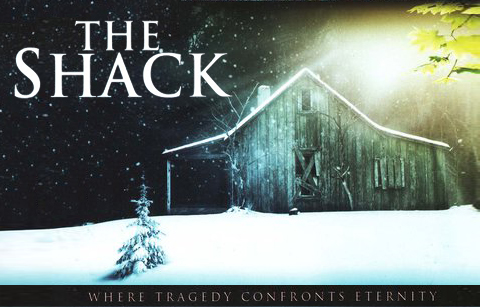
I just finished reading The Shack by William Paul Young and highly recommend it to anyone. The story does a great job getting past our preconceived ideas about God and challenges the lies that we believe about Him. (see our blog post on We Love Because God First Loved Us).
The story follows the character Mack through his struggle with coming to grips with a loving God and deep tragedy. As with any good book, it begins with setting the stage. This may be hard for some to read – for those who emotionally connect with stories like me. But, this beginning is necessary to understand the depths of struggle Mack will have later on trying to balance the anger he feels and the emotions he feels are being asked of him.
The unhealed pain and unresolved issues of our lives have a tendency to feed lies into our hearts about ourselves and/or about God. These lies often live deep within our hearts which we keep safely hidden from others because we intellectually know they do not match the words of truth in Scripture. Unfortunately while we can keep them hidden from everyday thought, when push comes to shove we act out of those lies.
- God will not provide for me, so I spend more time away from my family to provide for them.
- I will never be free of this addiction, so I will never share it with anyone else.
- God will not take care of me, so I will live in fear of potential tragedies.
- I will never be able to manage my emotions, so I distant myself from other in order not to hurt them.
- God does not really care about me, so I manage the hurt of my life myself.
- I can never forgive my parents, so I will justify my anger to those I feel are against me.
With each of these lies, we need allow God to expose them and speak His truth to our hearts. Then we need to choose to walk out in the light of those truths. The Shack does a great job creating a story of a loving God reaching down to a hurting man to expose the lies and allow him to see the freedom of the truth.
One of the on-going lies Mack believes about God is not loving because of the tragic event that happens. In one occasion, the God figure answers Mack…
“Just because I work incredible good out of unspeakable tragedies doesn’t mean I orchestrate the tragedies. Don’t ever assume that my using something means I caused it or that I need it to accomplish my purposes. That will only lead you to false notions about me. Grace doesn’t depend on suffering to exist, but where there is suffering you will find grace in many facets and colors.” “I did not purpose [that bad thing], but that doesn’t mean I can’t use it for good.”
It is encounters like this which is why I like the Shack. I believe this book will encourage your pursuit of God and deepen your prayer life.
For other of you who have read the book, what are your thoughts?